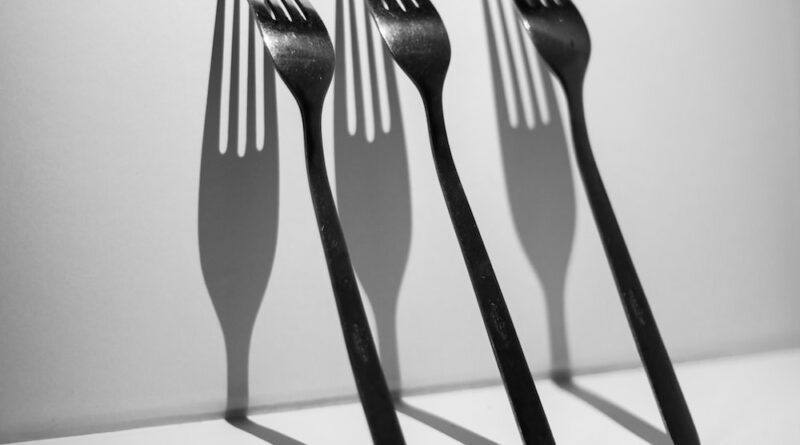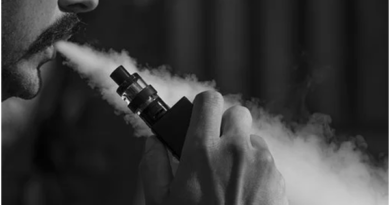Are Forks Illegal In Canada?
You might be wondering if forks are illegal in Canada. Well, the answer to this question is a bit strange. First of all, they are technically illegal in Canada, but are they really? You see, forks are a weapon, and they can even cause injuries. As a result, they are prohibited in public areas. Moreover, forks can be a security threat, so it is not allowed to carry them with you when in public places. Besides that, the ban was also implemented in order to protect the environment and reduce pollution.
Why Are Forks “Technically” Illegal In Canada?
Table of Contents
You’ve probably heard that forks are illegal in Canada, but it’s not true. Unlike knives, forks are legal to use and carry in Canada. In fact, hotels can legally have forks on their property. The only exception is if you plan on using them in your room. In a restaurant, however, forks are strictly prohibited.
As you can see, the laws in Canada are quite strange. For example, if you want to be a lawyer, you have to study law for a long time and pass a series of tests in order to become licensed. But the laws surrounding forks are even weirder. For example, in some areas, forks are banned in restaurants and are regarded as knives.
Another reason for banning forks is the health risks they carry. For instance, people using forks are more likely to over-serve themselves. The laws are intended to prevent this. Those who violate the laws will face penalties. It may seem like an insignificant matter, but if you’re planning to use forks to stab people or pick up steaks from the grill, you’re in trouble.
Another reason why forks are banned in Canada is because of the safety risks associated with them. People use forks to eat food in public places. But what about those who prefer to eat with their hands? The laws are not the same for all countries, but in Canada, people who eat with their hands still have the right to eat with them.
The question of whether forks are legal in other provinces is another good reason. The rules are not always clear when it comes to the safety of people. The RCMP, for example, requires tuning fork users to be tested as part of their job. However, RCMP divisions across the country require fork users to take the tests.
Great Canadian Fork Fight Of 1812
While forks are often considered to be useful utensils, they are also dangerous weapons. This is one of the reasons why the ban on metal forks was imposed. It was based on the concern for the safety of students, staff, and parents. This concern has led to the adoption of sanitary utensils in schools and restaurants across Canada. However, the ban on plastic forks was only enacted in 1879, just a few years after the Great Canadian Fork Fight.
While the Great Canadian Fork Fight of 1812 took place in Canada, the forks used by the Indians in the United States and Canada during the Napoleonic Wars were not a direct representation of the real event. The war was declared in 1812 by the United States Congress as a response to the British blocking French maritime trade, capturing American seamen, supporting Native American tribes, and invading the colony of Canada. Although Canada was still under British rule, American factions soon began to invade Lower Canada and Upper Canada.
In Canada, forks are not considered a weapon, but there are some rules about their use. For example, if you are eating in a restaurant without forks, you should ask for a spoon instead. However, if you’re eating by yourself, you can use your forks.
The American army, led by General Dearborn, was aiming for expansion into Canada. He received reports that the British were near Kingston. So, he chose to attack Fort York first, which was guarded by 700 men. The battle was fought in pitch darkness, with exhausted soldiers unable to distinguish their friends from their enemies. However, the American army won, but the American army was unable to break the British.
But Are Forks Really Illegal?
Forks aren’t illegal in Canada unless they’re being used as a weapon. However, that definition is subject to disagreement. Regardless, if you’re planning to use forks in public, you should consider your options carefully. If you’re caught, you could face fines and even imprisonment.
Fortunately, forks are not illegal everywhere, and in Canada, the only places they’re prohibited are restaurants, public buildings, and bars. While many people might wonder why they’re not allowed to use them in public places, the fact is that forks are considered weapons in Canada. In some places, they’re even illegal to carry, and can even be used to threaten or stab someone.
The idea of banning forks in Canada started as a rumour, spread by a TikTok video. The video claimed that forks were no longer sold in Canada, and that this was related to the Great Fork Fight that took place in 1812. However, the video’s creator was mistaken. Canada’s Minister of Environment and Climate Change recently announced a ban on single-use plastics by 2020. It’s unclear when the ban will be in place, but some companies are already making changes to meet the ban.
In Canada, forks aren’t illegal, but knives and sharp objects are. However, there are restrictions on forks in certain places, and a recent law aims to ban single-use plastics by 2022. The laws and regulations surrounding forks are constantly changing. The first law prohibits using them in public places. The second ban prohibits using them in private homes.
A fork is a common utensil for eating and is very similar to a knife. However, forks are two-pronged, while knives only have one. In addition, they do not have a sharp point on the tip, making them easier to eat with. As such, it’s important to check the rules of a restaurant before eating.
So What Does This All Have To Do With Tik Tok??
As TikTok grows in popularity in the United States, concerns are growing about the privacy of user data. The company has denied that it collects data on users outside of China. However, a January report by BuzzFeed claimed that employees of the company were accessing the data of Americans. The staff member denied this but added that everything on the app was seen by China.
There are many ways to make your videos go viral on TikTok. For example, you can try joining challenges or uploading behind-the-scenes content. This will allow people to know the real person behind the brand. You can also take advantage of the growing life hack trend and use your videos to share your life experiences with your fans. You should be open to experimenting and seeing what works for you.
You can post any type of content on TikTok. You can repurpose content from other sites or just post your own short video. You can make videos about any topic you want. Even if you aren’t a famous YouTuber, you can use TikTok to share videos about your favorite topic.
You can also add music to your videos. This is a more complicated process, but the company offers music and sound effects in its library. If you want to use music, make sure you obtain permission from the rightsholder before adding it to your videos. This way, you won’t be breaking copyright laws.
As TikTok grows in popularity, creators need to find ways to capitalize on their popularity by partnering with brands and creating content for their audiences. Creating great video content is not enough without a strategy.
Weird Kitchen Utensils Laws in Canada
There are some weird laws in Canada you might not be aware of. For example, you can’t transport alcohol across provinces, or the number of coins in your wallet can be limited. Even in Halifax, taxi drivers have to wear a certain dress code. The Canadian government has decided not to ban forks in Canada, but there are still some restrictions.
Weird Laws in Canada
Weird kitchen utensils laws in Canada include taxes on oysters and illegally dragging a dead horse down Yonge Street on Sundays. A section of the Canadian Criminal Code is dedicated to oysters, and un-shucked oysters are taxed. In Toronto, it’s against the law to drag a dead horse down Yonge Street, even on Sundays.
The use of forks is forbidden in public buildings, but forks are legal in private. While the likelihood of forks being used as weapons is very low at home, the laws still apply. Canada’s knife law is the closest thing to banning utensils entirely.
Another weird kitchen utensils law is that Canadians must use forks with their right hand when eating. This is a courtesy for the person who is serving them and makes it easier for them to eat their food. Similarly, eating cereal or soup with a spoon will save you a lot of trouble and signal other people that you aren’t using a fork.
You Can’t Move Alcohol Across Provinces
You can bring alcohol across the border into the country, but there are many restrictions. In New Brunswick, for instance, you are not allowed to bring more than nine litres of wine or beer. In the Northwest Territories, you can bring up to 49.2 litres. If you plan to move alcohol to another province, you can get a license to do so. In Quebec, however, you are only allowed to bring a case of beer or two cases of wine. If you want to move alcohol from one province to another, you should contact the government to find out more information.
If you are bringing alcohol to another province, you need to declare it as alcohol. You may need to use a customs broker to help you with this process. Once you have the paperwork and have the alcohol labeled, you ship it directly to the province’s government agency, which has warehouses for alcohol distribution.
Limit On Number Of Coins
When you get more coins, you can upgrade your kitchen utensils to make them more efficient. This is important when you’re trying to reach a more intensive level. This upgrade also increases the value of foodstuffs. You can also collect more coins when you upgrade a food item.
Taxi Drivers Dress Code In Halifax
Despite the fact that Halifax has a vibrant, diverse taxi industry, there are very few women of colour operating cabs. Annie Reddick-Simmonds, a black woman taxi driver in Halifax, faced a number of discriminatory attitudes from passengers. In this piece, she explains her experiences as a taxi driver and the challenges she faced.
First of all, she examines the role of gender and work culture in the taxi industry. This occupation has traditionally been dominated by men, which makes the lack of women drivers even more problematic. Nevertheless, women have worked hard to challenge the patriarchal nature of the industry and to gain a better occupational standing.
While men and women work in separate vehicles, they share many similar aspects of the job. While they operate at different taxi stands and areas of town, men and women take coffee breaks in the same places, eat in the same restaurants, and have similar work habits. This close interaction between workers is important in building a shared work-culture identity.
Whistle Ban in Petrolia Ontario
You can no longer whistle while driving in Petrolia, Ontario. However, this law was not approved without some opposition. While it was not passed unanimously, it did receive provincial approval, and the Minister of Environment, Jim Bradley, signed off on it. The city has made efforts to get the law overturned, and is pursuing other legal remedies, including a lawsuit.
In the past, there were several ways to avoid being prosecuted for making noise in public. In Canada, if you made a noise that was too loud, you could get arrested. Petrolia, Ontario, has a no whistle zone between 11 p.m. and 7 a.m. The city also prohibits dragging a dead horse down the street, carrying a snake in public, holding too many garage sales, and picking trillium.
According to the city’s official website, the city does not allow whistling in certain zones. The city limits noise to seven decibels between 11 pm and 7 am. However, this is not enough to stop many people from making noise.
Swimming Areas In Toronto Lake
While swimming in Toronto Lake is illegal, there are many places to swim in Toronto Harbour. For decades, the law in Toronto’s Harbour was ambiguous, but skinny dipping was never welcomed by the police. These days, however, there is a designated nude beach, which is much more tolerant of skimpier attire.
The city has 46 kilometres (29 miles) of waterfront, and in the summertime, it is often busy. There are 11 public beaches that offer swimming, and many are staffed with lifeguards. Most destinations also offer limited parking, as well as public washrooms.
Despite these precautions, beaches are not always safe to swim in. Many of Toronto’s public beaches have elevated levels of bacteria, including E. coli, which is dangerous for people and can cause stomach cramps. High levels of bacteria can also cause eye infections, throat infections, and skin rashes. Additionally, the water in Toronto’s beaches can be unsafe due to poor weather conditions. Furthermore, public beaches are regularly monitored for blue-green algae, which are toxic for humans and dogs.
Picking Trillium
Picking trilliums is illegal in Canada. These flowers are not edible, and collecting them is a violation of the province’s laws. Trilliums have enlarged bracts on the base of the flower that resemble leaves. This law also prevents people from picking trilliums in provincial parks.
Trilliums are a delicate, three-petaled white flower that is the official flower of Ontario. Picking them is prohibited, and those who do are subject to fines of up to $500. However, it is still possible to find them in forests across Canada. Sarah Clarke, a local resident in Dufferin County, snapped a photo of one growing near Mono Cliffs Provincial Park.
Trilliums grow in tight clusters. Woodland ants use these clusters to collect seeds in late summer and autumn. The seeds are oily and attract the ants, which transport them into their underground caverns. The plant will die if the leaves and flowers are harvested.
Read on: Usglobalworld.com




